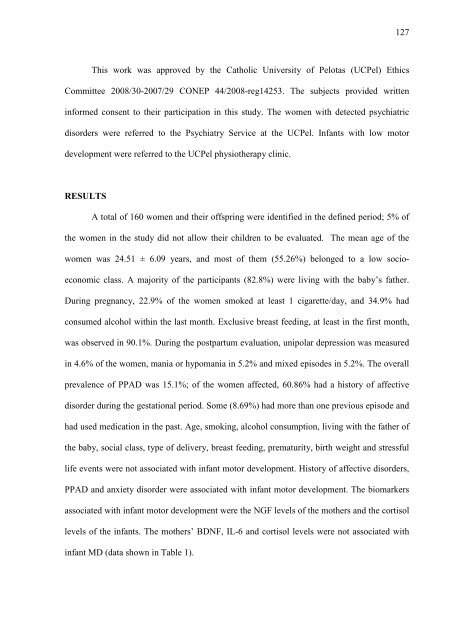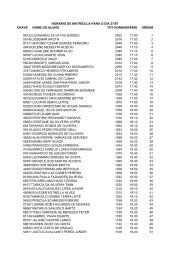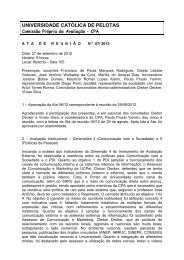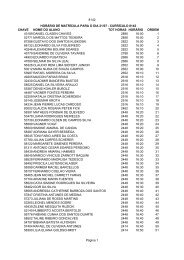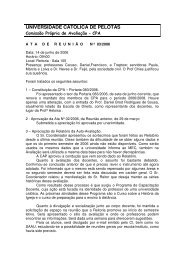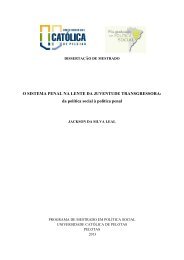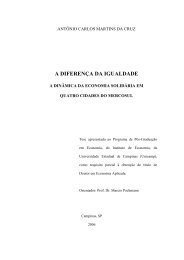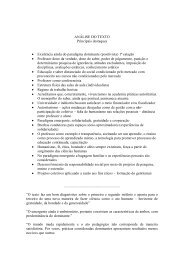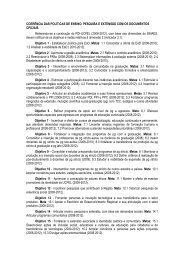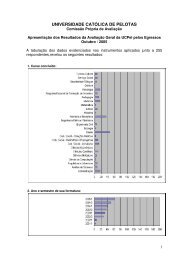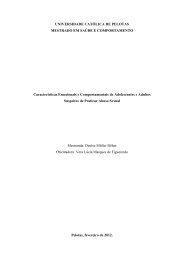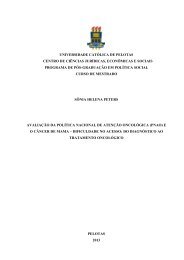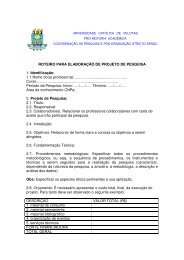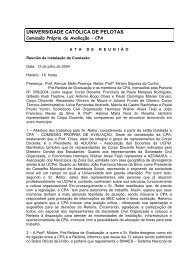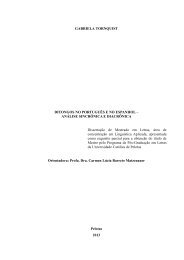Karen Amaral Tavares Pinheiro - Universidade Católica de Pelotas
Karen Amaral Tavares Pinheiro - Universidade Católica de Pelotas
Karen Amaral Tavares Pinheiro - Universidade Católica de Pelotas
Create successful ePaper yourself
Turn your PDF publications into a flip-book with our unique Google optimized e-Paper software.
127<br />
This work was approved by the Catholic University of <strong>Pelotas</strong> (UCPel) Ethics<br />
Committee 2008/30-2007/29 CONEP 44/2008-reg14253. The subjects provi<strong>de</strong>d written<br />
informed consent to their participation in this study. The women with <strong>de</strong>tected psychiatric<br />
disor<strong>de</strong>rs were referred to the Psychiatry Service at the UCPel. Infants with low motor<br />
<strong>de</strong>velopment were referred to the UCPel physiotherapy clinic.<br />
RESULTS<br />
A total of 160 women and their offspring were i<strong>de</strong>ntified in the <strong>de</strong>fined period; 5% of<br />
the women in the study did not allow their children to be evaluated. The mean age of the<br />
women was 24.51 ± 6.09 years, and most of them (55.26%) belonged to a low socioeconomic<br />
class. A majority of the participants (82.8%) were living with the baby’s father.<br />
During pregnancy, 22.9% of the women smoked at least 1 cigarette/day, and 34.9% had<br />
consumed alcohol within the last month. Exclusive breast feeding, at least in the first month,<br />
was observed in 90.1%. During the postpartum evaluation, unipolar <strong>de</strong>pression was measured<br />
in 4.6% of the women, mania or hypomania in 5.2% and mixed episo<strong>de</strong>s in 5.2%. The overall<br />
prevalence of PPAD was 15.1%; of the women affected, 60.86% had a history of affective<br />
disor<strong>de</strong>r during the gestational period. Some (8.69%) had more than one previous episo<strong>de</strong> and<br />
had used medication in the past. Age, smoking, alcohol consumption, living with the father of<br />
the baby, social class, type of <strong>de</strong>livery, breast feeding, prematurity, birth weight and stressful<br />
life events were not associated with infant motor <strong>de</strong>velopment. History of affective disor<strong>de</strong>rs,<br />
PPAD and anxiety disor<strong>de</strong>r were associated with infant motor <strong>de</strong>velopment. The biomarkers<br />
associated with infant motor <strong>de</strong>velopment were the NGF levels of the mothers and the cortisol<br />
levels of the infants. The mothers’ BDNF, IL-6 and cortisol levels were not associated with<br />
infant MD (data shown in Table 1).


